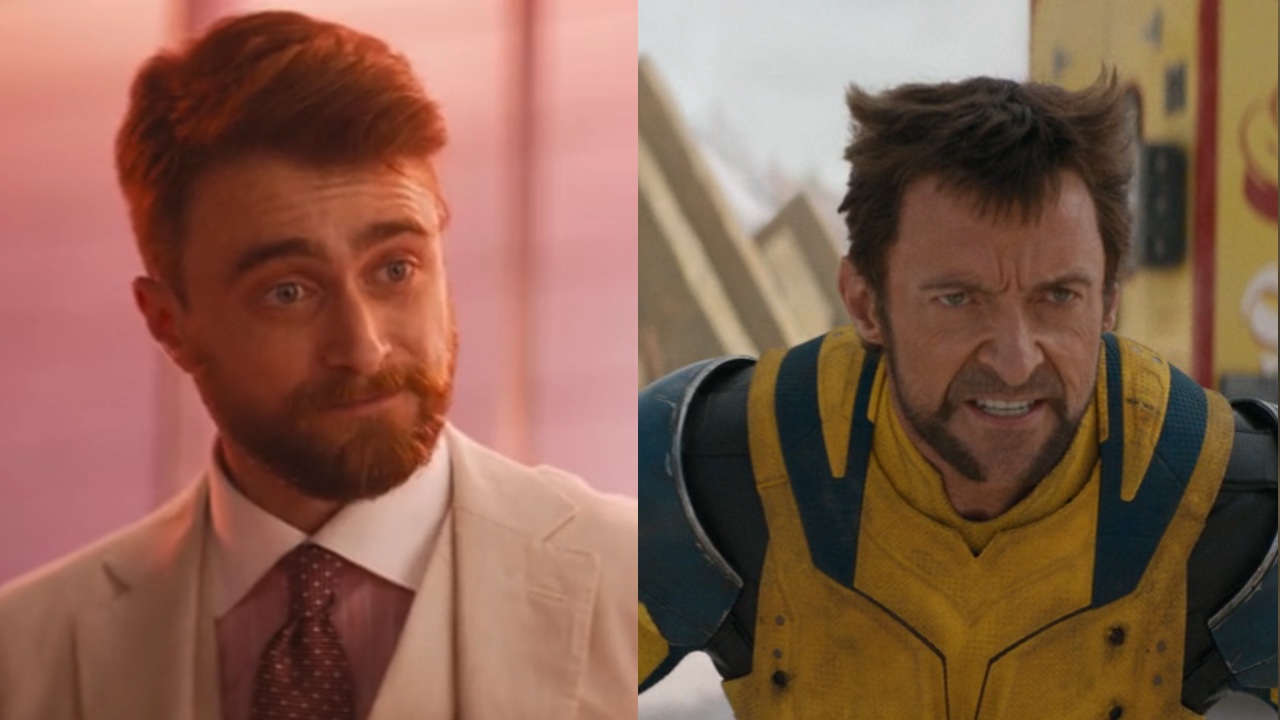Prometheus is only vaguely related to the Alien franchise, and it is more or less a remake of Star Trek V: The Final Frontier. There's a lot of college dorm philosophical mumbo jumbo on top but it all really boils down to, "Man seeks his creator/makes contact/discovers he is a total jerk." The film is co-written by Damon Lindelof of Lost fame and, like that program, Prometheus steals "cool" ideas about as fast as it ignores or contradicts them. Lindelof is fast becoming the Rod Serling of moment-to-moment thrills. Add those up at the end and everything comes out equaling zero. The intentionally cryptic storytelling aside, the film is not bad. There is some elegance in how the film's central narrative is mirrored within the character of "David" (Michael Fassbender), the android whose human creators openly treat with mild tolerance bordering on disdain. There were well-earned moments of suspense, a few moments of shock and gore, and several moments of laughter. Not many of those laughs were intentional, but I’ll hand it to Guy Pearce, who provides quite a few of them doing his impersonation of "Keir Dullea" from 2010: The Year We Make Contact.
Ridley Scott does his impersonation of "Ridley Scott" circa 1979 and, make no mistake, this is a good thing. It's been a long while since he trusted his ability to actually frame a shot and leave it alone. Prometheus seems to have been partly designed to get himself back in touch with his earlier work. For instance, an insane set piece involving a self-service abortion device is about as slimy and bloody as can be imagined and is full of the kind of squirming intensity that Scott brought to the original Alien.
The cast is uniformly fine, with one exception: Michael Fassbender. Fassbender steals every scene he is in, making what could've been a one-note role into something quite complex. You feel both sympathy and revulsion for this ‘robot’ who seems like a futuristic Pinocchio. He admires his ‘father’ greatly and appears to genuinely want to fit in with his human colleagues. His favorite movie is Lawrence of Arabia, which inspires him to comb his hair just like Peter O'Toole. It is a telling choice for an android, since the key to O’Toole’s famous character’s charm is probably his soullessness.
Finally, I don't know if I like the idea of man's creators being "roided up" versions of ourselves. Imagine going to a planet at the far end of the universe only to find out that we are really the descendants of the cast of "Jersey Shore". I mean, why bother? The Blu-ray for Prometheus is a beautiful disc that dazzles the eye with some very photo realistic digital effects and a frightening, atmospheric soundtrack. Aesthetically the film is on par with Scott's best work. The visuals are very detailed, with strong attention to producing convincing spaces of source light and shadow.
The special features on the disc are "Deleted Scenes,” “The Peter Weyland Files" and two separate audio commentaries. You also get an app of some sort (if you are into apps) and there is the requisite standard DVD copy as well. The "Deleted Scenes" include alternate opening scenes and endings. The actual cuts used in the film are more effective in preserving some sense of mystery. What is shown in the alternate openings and endings as originally staged is about as subtle as a frying pan to the head. It's interesting that no balance could really be achieved between the cryptic and the obvious. The other scenes are mostly longer versions of those that made the cut that largely focus on the relationship between Charlize Theron's Meredith Vickers and ship captain Janek (the always cool Idris Elba).
"The Peter Weyland Files" include some of the more interesting material. One could imagine an amazingly bold movie that would've used those to set up the character and story world. I guess we are now expected to accept that these side projects, shorts and clips put online are to be considered as part of the cinematic experience. I can only greet that argument with a shrug. As far as I am concerned, if it's not in the film's official running time, it does not exist.
The audio commentaries are the best features on the disc. One features screenwriters Jon Spaihts and Damon Lindelof breaking down the choices made in storytelling and what exactly changed from Spaihts' initial drafts to the final draft Lindelof polished. This is a very informative commentary and will be of interest to screenwriters in particular. However, it is the other commentary that makes the disc truly worthwhile.
Your Daily Blend of Entertainment News
I have heard Ridley Scott speak about his work many times and have watched his lemon sucking face not even vaguely attempting to hide his contempt for the Academy each time he has lost in the "Best Director" category. But listening to him here, speaking proudly--perhaps even defiantly--about his film and his work has given me a new found respect for the man. His lack of pretense or feigned humility is so refreshing. Why must an artist dance around his admiration for his own hard work? Scott talks about the "small minds" at the studio who question him about his "vision" and wonders openly how they can do that when he has two films in the National Registry and a body of very financially successful films. Who are these peons? Not since John Huston have I heard someone so blatantly describe the role of the director on a motion picture. Scott says quite simply that it's his job to tell people what he wants done and for everyone else to "shut the f$%k up." I guess even movie directors become respectable with age.

